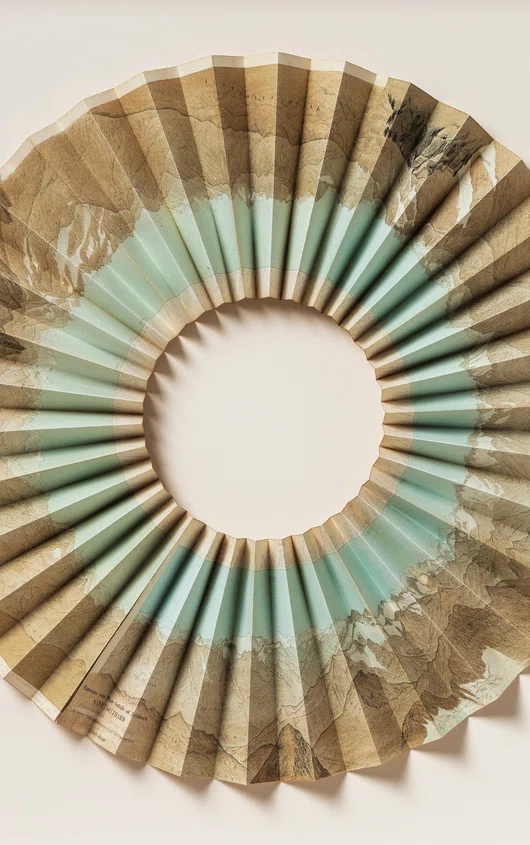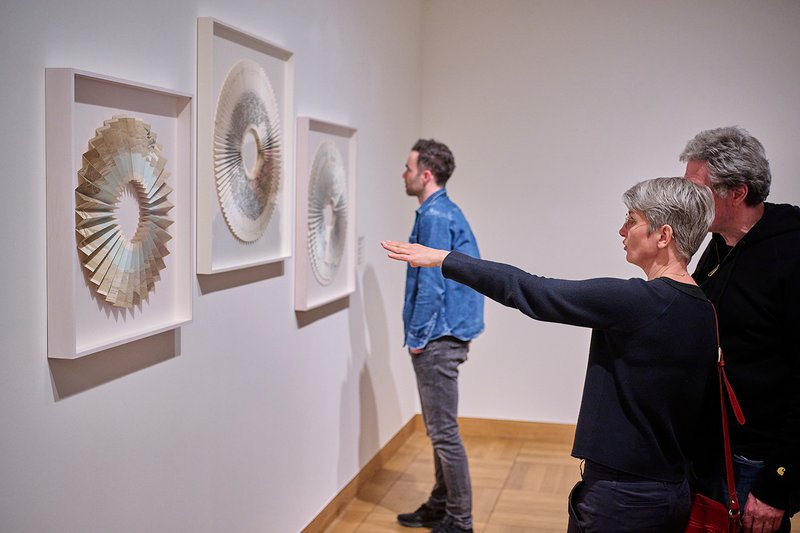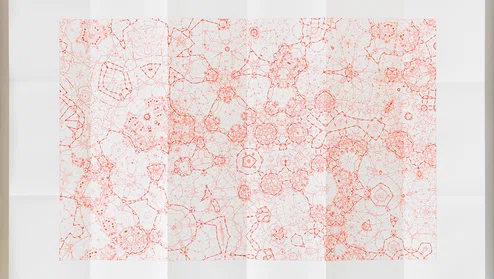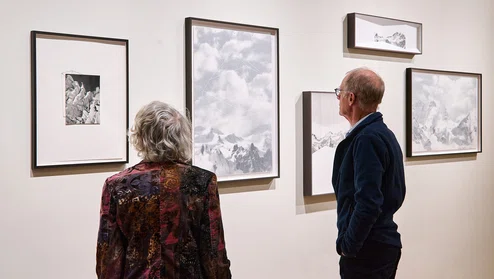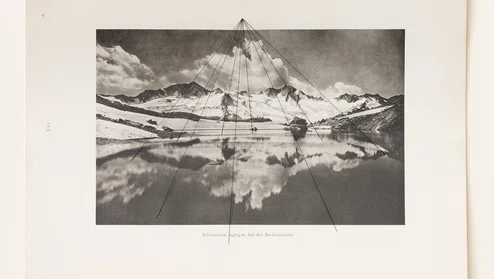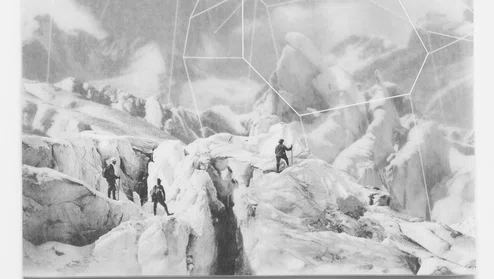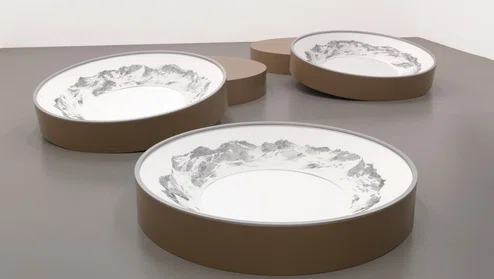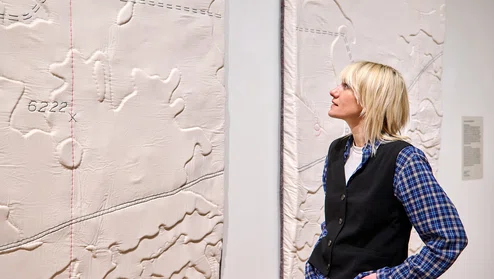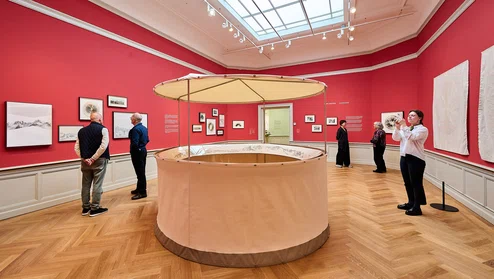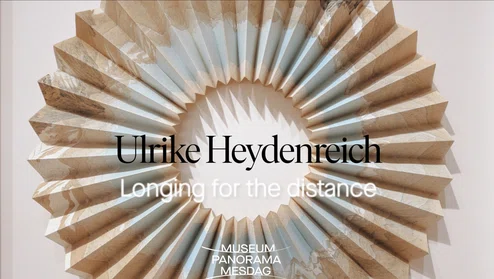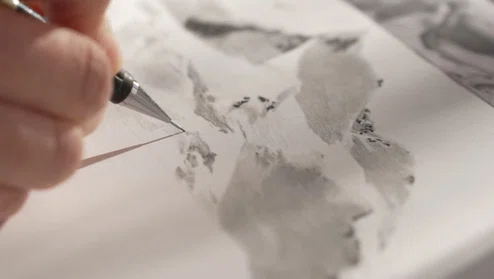Heydenreich and Mesdag
Nineteenth century as starting point
Resemblance and reference
A wondrous world
Like Hendrik Willem Mesdag (1831-1915), Heydenreich toys with perspective and illusion, the difference being that she fabricates rather than replicates the view and shows you what you don’t see. With her three-dimensional artworks she creates the illusion of a new wondrous world.
Nineteenth Century
Heydenreich sometimes refers quite literally to the phenomenon of nineteenth-century panoramas, as is the case with the historic topographical maps she uses in her work. Heydenreich draws copies of various mountain ranges taken from historical photos or creates collages from old topographical maps, merging different mountains together to create a new landscape
The resemblance can also be seen in her 360-degree drawings. In order to make these drawings, she developed a portable instrument. Coincidentally, this tool bears a close resemblance to the glass cylinder to which Mesdag, standing atop the Seinpostduin, applied the contours of his later Panorama painting in 1880.
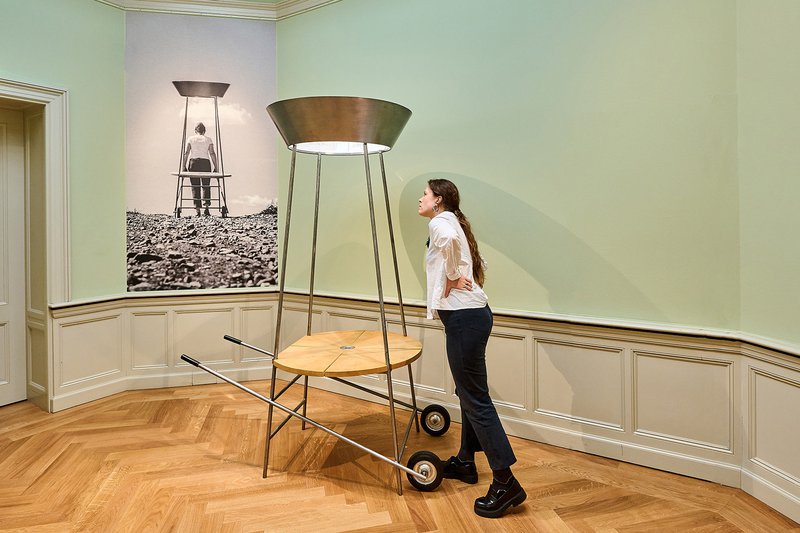
The Panorama Drawing Device, by Ulrike Heydenreich.
Trailer
Get an impression of the exhibition
Video by Studio Roodenburch
Discover for yourself
The art of folding
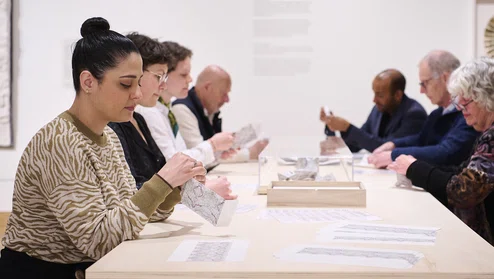
Wunderkammer
The exhibition includes a special gallery – a wunderkammer – featuring objects and sources of inspiration from Heydenreich’s own atelier, including folding templates, historical postcards and a perspective box.
Open Atelier
An open atelier has been arranged for visitors. Folding tasks await them atop a large table; Heydenreich designed this hands-on experience especially for the museum.
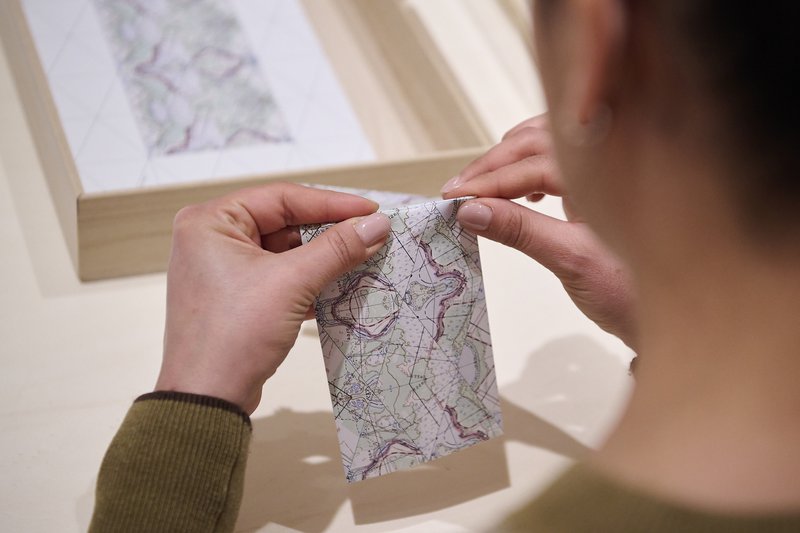
A conversation with Ulrike Heydenreich
Interview series
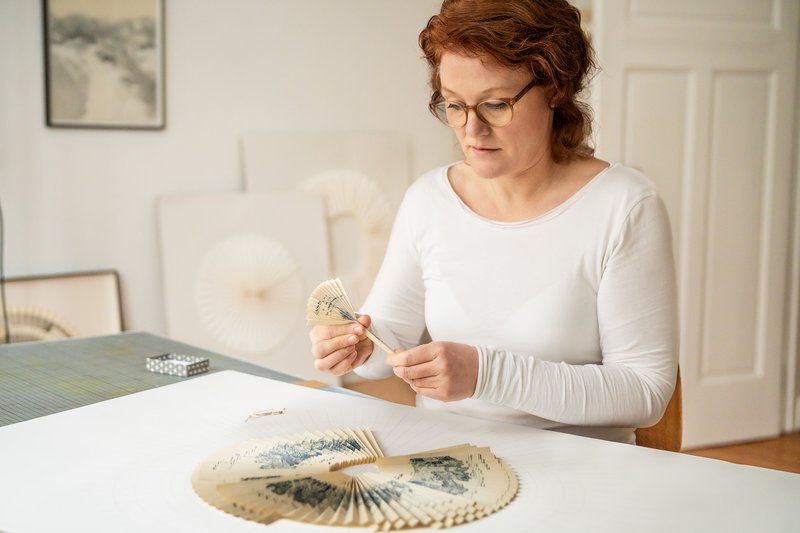
Ulrike Heydenreich at the studio (model for Fundstück 11), 2021 ©Markus J. Feger
Inspiration, work, techniques
In the run-up to the exhibition Ulrike Heydenreich: Longing for the Distance, you can read a series of interviews with the artist. Head of program and museum affairs Adrienne Quarles van Ufford interviews Heydenreich about her work, what inspires her and the techniques she uses.
Read the interviews
Part 1: Fascinated by vistas
Part 2: Longing
Part 3: Early 20th-century as a starting point
Part 4: Heydenreich folds, cuts, draws
Film
Longing for the distance
At the studio
In a short documentary recorded in her atelier, the artist explains her methods and how her artworks come to be. What does she use as her material and how do her meticulously folded lines come about? Documentary maker Markus J. Feger follows Heydenreich in this process.
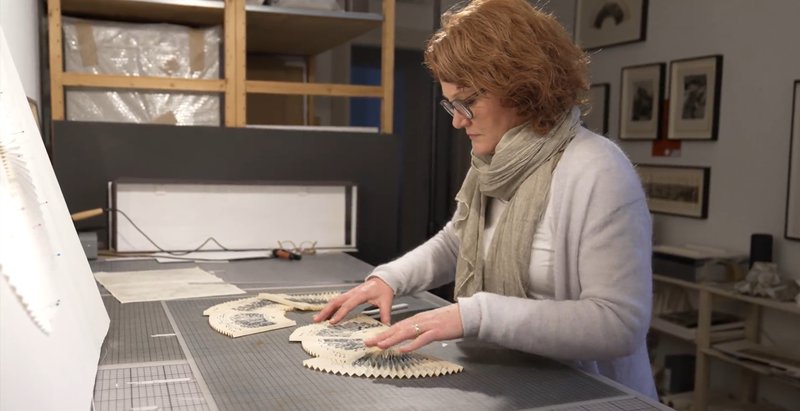
Ulrike Heydenreich, film still.
Book
Longing for the distance
Publication
Alongside the exhibition a book is published with the title Ulrike Heydenreich. Longing for the distance. In this publication, an interview written by Adrienne Quarles van Ufford is alternated with high-quality images in an overview of her work in the exhibition.
The book can be bought in the museum shop and webshop (Dutch only).
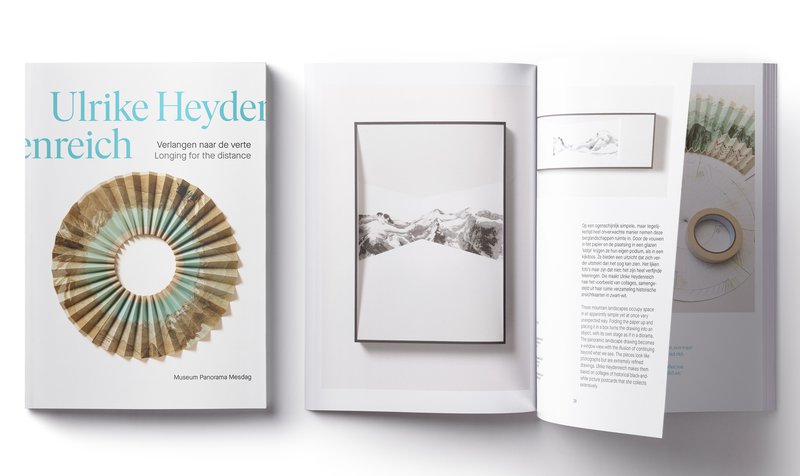
Image: Petra Warrink
About the artist
Ulrike Heydenreich lives and works in Düsseldorf, Germany. She studied at the renowned Bauhaus-Universität Weimar, as well as at the School of Visual Arts, New York and other institutions. Her art has been exhibited in countries including the United States, Germany, Spain, Japan, Belgium and Austria..
Support
Partners and benefactors
Gemeente Den Haag
Stichting Van Ommeren De Voogt
Mondriaan Fund
